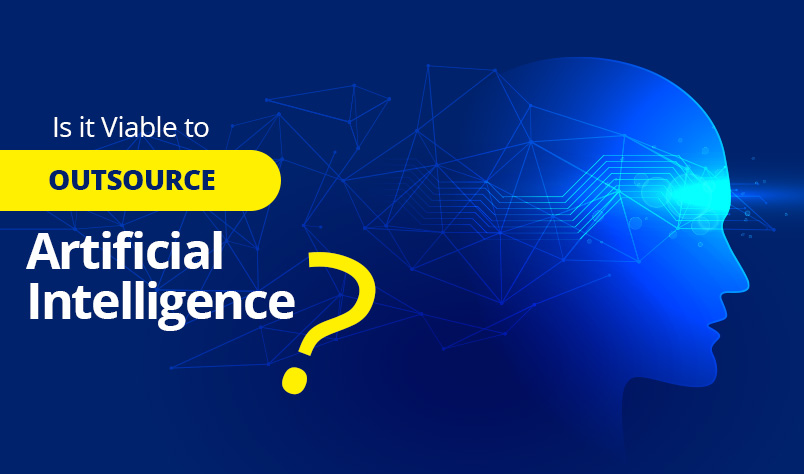-
Get Cloud GPU Server - Register Now!
Toggle navigation

We all know that Artificial Intelligence (AI) is a boiling topic nowadays. Businesses use AI to reach their customers in an all-new manner to woo people towards their business service. AI introduced chatbots along with other automated functions, which are spreading like crazy.
An AI Chatbot makes all monotonous functions easy, helping the business agents focus on productive changes for the organization. Companies know that the online world is packed with people, and it is easy to grab customer attention there. AI thus uses various mediums to enrich customer satisfaction so that business loyalty and brand image is strengthened. Businesses, with the use of AI and social media platforms, try to connect to the audience in an all-new manner so that the business reach augments exponentially.
AI is not only helpful for the business world, but it also helps humanity. With features like automating several tasks, eliminating the need for humans to perform all functions, giving weather updates, disaster response facility, freeing humans from unnecessary obligations, etc. AI proves to be a guardian angel for the world today.
However, there are also assumptions that AI might take over the world or turn evil. Is it so?
Well, this can be distracting from what is actually going on, as there are pros and cons for everything. If AI is used negatively, it can bring derogatory results. One of the key ingredients in AI’s performance is “data”. If this data is used in an inappropriate manner, it may bring destructive consequences.
Data exploitation by using AI gives a negative name to this branch of computer science. This raises concerns of cyber threat for businesses too.
Read also– Ways Automation and Outsourcing Work Parallel to Each Other
Moving forward, businesses receive several perquisites with an AI technology by their side, like cost reduction, enhanced flexibility, reduced time for task completion, intelligent CRMs, excellent customer service, best marketing, competitive intelligence, business security, and many more.
With all these, most of the business owners are puzzled over a simple question-, is it possible to outsource business AI? Well, we have heard of BPO outsourcing several times but the question is- Does it make sense to outsource AI?
Well, outsourcing is undoubtedly a cost-effective manner to save business expenses and receive exponential service. However, outsourcing to get expertise in artificial intelligence is a dicey decision businesses are bewildered over.
Incorporating artificial intelligence in business service is a challenging task and has certain possibilities for risk too. However, when used properly it can do wonders for your customer satisfaction and business brand image.
The biggest benefit of outsourcing AI is that businesses get the best artificial intelligence (AI) experts at work. Generally, it is hard to find and hire experts at business service, and outsourcing helps the business save the cost of monthly payroll by hiring and training the agents in-house. By outsourcing, businesses just have to pay for the time the agent serves. There are no full-time employees or fixed salaries per month.
Preparing AI projects with a partner that does not have previous experience in the same stream can bring negative results. Nevertheless, outsourcing to a skilled partner having the knowledge of AI functionalities can enhance business delivery.
External providers have an experience of working with a global network and thus they have an idea of market trends and know the effective ways to streamline business processes. AI driven applications for the business are not easy to handle as they are data driven, making it necessary to have an experienced partner by their side. Since, hiring in-house can cost several bucks, it is better to outsource to a reliable partner.
Outsourcing to an external partner, the business has much time left to focus on competition and strategies for business development. Companies will unsurprisingly benefit by having external AI experts, as there is no need for monthly payroll services because the experts are paid for the time they serve the company.
When a business outsources to third party AI experts, they possibly lack domain expertise. This highlights the issue of hiring and training, which can be very expensive. A company outsources to be free of monotonous responsibilities, however, when the partner requires training for industry-specific AI application, it ends up having no positive results.
Organizations, when outsourcing their business functions, lack the opportunity to train their own employees. After outsourcing, an external partner performs all the AI functions, which does not leave time for the in-house agents to have any further access of developing AI apps or software. This is where the in-house team loses the opportunity of training and development.
When a company decides to outsource its AI processes, it needs to have the idea that the organization will have to share confidential data, which can be dangerous. Security is a major concern for every business and any threat to it can cost them big. Cyber threat cases moreover are rife in the industry and thus, it’s prudent to think before making any final decision.
Read also- Artificial Intelligence | This Tech Is Making Recruitment Easier
Outsourcing has boosted the business industry for generations. However, when it comes outsourcing Artificial Intelligence (AI), businesses just need to think over some drawbacks to avoid. AI outsourcing is not the same as other BPO outsourcing services and depending on several aspects, a company may or may not want to outsource this function.
Lastly, if AI is not subsidiary, and is part of the core function of your business, it is better to keep its service in-house rather choosing outsourcing.
AI’s future impact on the job market, If human-level AI will be developed; whether this will lead to an intelligence explosion or this is something we should welcome or fear. Yes, that’s correct that AI is not only helpful for the business world, but it also helps humanity as well. https://www.seasiainfotech.com/artificial-intelligence.html